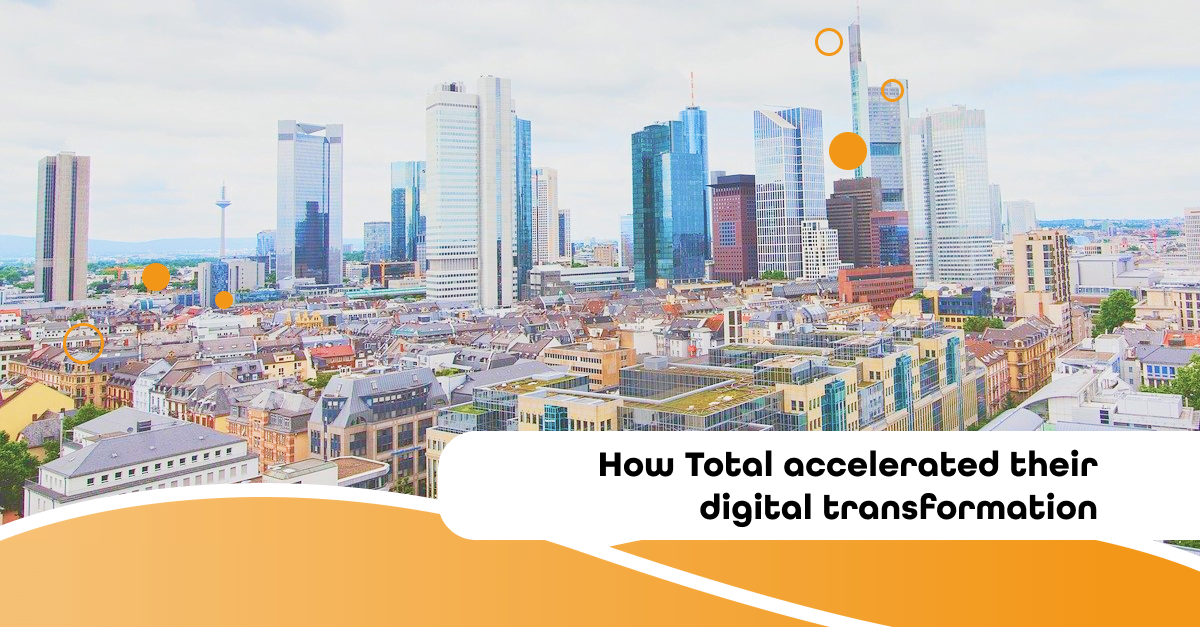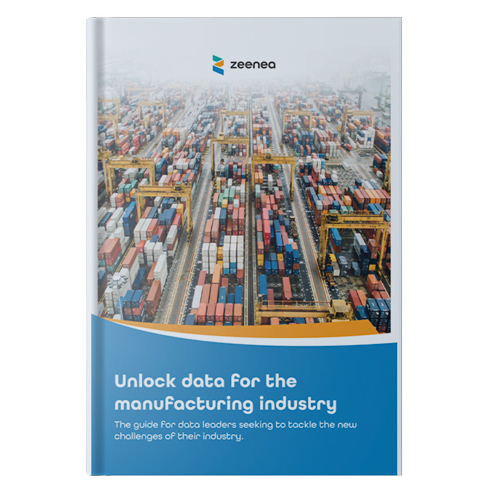Total, one of the 7 “SuperMajor” oil companies, has recently opened their Digital Factory earlier this year in Paris. The Digital Factory will bring together up to 300 different profiles such as developers, data scientists and other digital experts to accelerate the Group’s digital transformation.
More specifically, Total’s Digital Factory aims to develop the digital solutions Total needs to improve its availability and cost operations in order to offer new services to their customers. Their priorities are mainly centered around the management and control of energy consumption, the ability to extend their reach to new distributed energies, as well as provide more environmentally friendly solutions. Total’s ambition is to generate $1.5 billion in value per year for the company by 2025.
During France’s Best Developer 2019 contest, Patrick Pouyanné, Chairman and Chief Executive Officer of Total, stated:
“I am convinced that digital technology is a critical driver for achieving our excellence objectives across all of Total’s business segments. Total’s Digital Factory will serve as an accelerator, allowing the Group to systematically deploy customized digital solutions. Artificial intelligence (AI), the Internet of Things (IoT) and 5G are revolutionizing our industrial practices, and we will have the know-how in Paris to integrate them in our businesses as early as possible. The Digital Factory will also attract the new talent essential to our company’s future.”
Who makes up the Digital Factory teams?
In an interview with Forbes this past October, Frédéric Gimenez, Chief Digital Officer and Head of the project described how the teams will be structured within Digital Factory.
As mentioned above, the team will have around 300 different profiles, all working using agile methodologies: managerial lines will be flattened, teams will have great autonomy and development cycles will be short in order to “test & learn” quickly and efficiently.
Gimenez explains that there will be multiple teams in his Digital Factory:
- Data Studio, which will consist of data scientists. Total’s CDO (Chief Data Officer) will be the one in charge of this team and their main missions will be to acculturate the enterprise to data and manage the data competences of the Digital Factory.
- A pool of developers and agile coaches.
- Design Studio, that will regroup UX and UI professionals. They will help come up with various creative ideas and will interfere not only at the analysis stage of Total’s business projects but also during the customer journey stages.
- A “Tech Authority” team, in charge of the security and architecture of their data ecosystem, in order to effectively transform their legacy in a digital environment.
- A platform team, in charge of various data storages such as their Cloud environment, their data lake, etc.
- A Product & Value office in charge of managing the Digital Factory portfolio, assessing the value of projects with the business and analyzing all the use cases submitted to the Digital Factory.
- A HR & a general secretariat
- Product Owners that come from all over the world. They are trained in agile methods on arrival and then immersed in their project for 4 to 6 months. They then accompany the transformation when they return to their jobs.
These teams will soon be reunited in a 5,500m2 workspace in the heart of Paris in the 2nd arrondissement, an open-space favorising creativity and innovation.
How governance works at Total’s Digital Factory
Gimenez explained that the business lines are responsible for their Digital Factory use cases. The Digital Factory analyzes the eligibility of their use cases through four criteria:
- Value brought during the 1st iteration and during its scaling up
- Feasibility (technology / data)
- Customer Appetence / Internal Impact
- Scalability
An internal committee at the Digital Factory then decides whether or not the use case is taken care of and the final decision is validated by Gimenez himself. For good coordination with the business lines, the digital representatives in the branches are also located in the Digital Factory. They are responsible for acculturating the business lines and piloting the generation of ideas, but also for ensuring the consistency of their branch’s digital initiatives with the Group’s ambitions, Total calls them Digital Transformation Officers.
First success of Total’s Digital Factory
Digital Factory started this past March and deployed the first squads in April during the Corona virus lockdown in France. In the Forbes interview, Gimenez explained that 16 projects are in progress with a target of 25 squads in permanent operation.
The first two digital solutions will be delivered by the end of this year:
- A tool for Total Direct Energie to assist customers in finding the best payment schedule using algorithms and data
- A logistics optimization solution based on IoT trucks for the Marketing and Services branch, which will be deployed in 40 subsidiaries.
In addition, Total managed to attract experts such as data scientists (despite a still very limited form of communication such as Welcome to the Jungle or Linkedin) and retain them by offering a diversity of projects.
“We are currently carrying out a first assessment of what has worked and what needs to be improved, we are in a permanent adaptation process.” stated Gimenez.
Digital Factory in the future?
Gimenez ended the Forbes interview by saying that the main reason for his project’s success is the general mobilization that everyone kept despite the sanitary context: “We received more use cases than we are able to deliver (50 projects per year to continuously feed our 25 squads)!”
Otherwise Total has two major KPI sets:
. measuring the proper functioning of the squads by examining the KPIs of their agile methodologies
. tracking the value generated
Are you interested in unlocking data access for your company?
Are you in the manufacturing industry? Get the keys to unlocking data access for your company by downloading our new white paper “Unlock data for the manufacturing industry”














